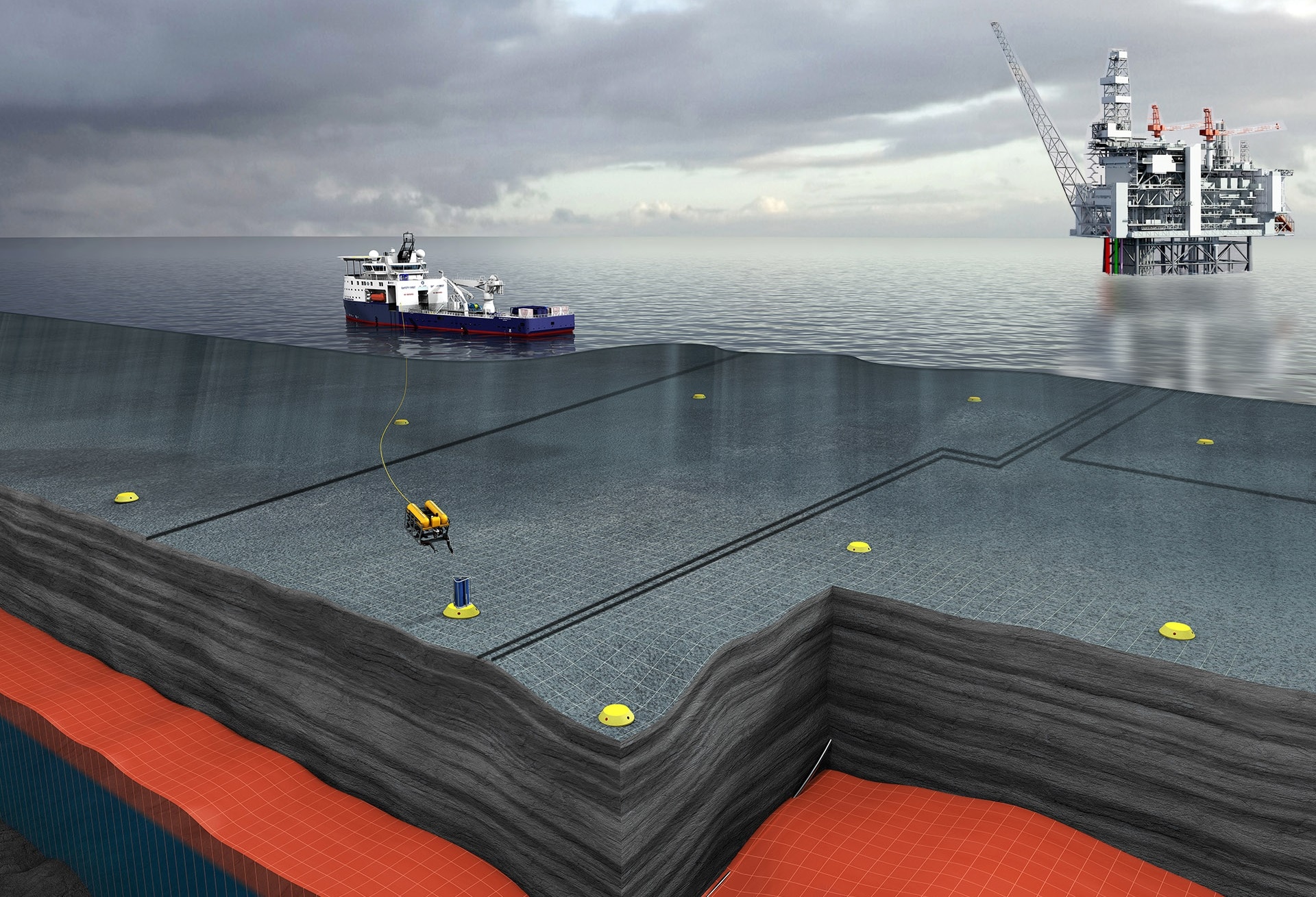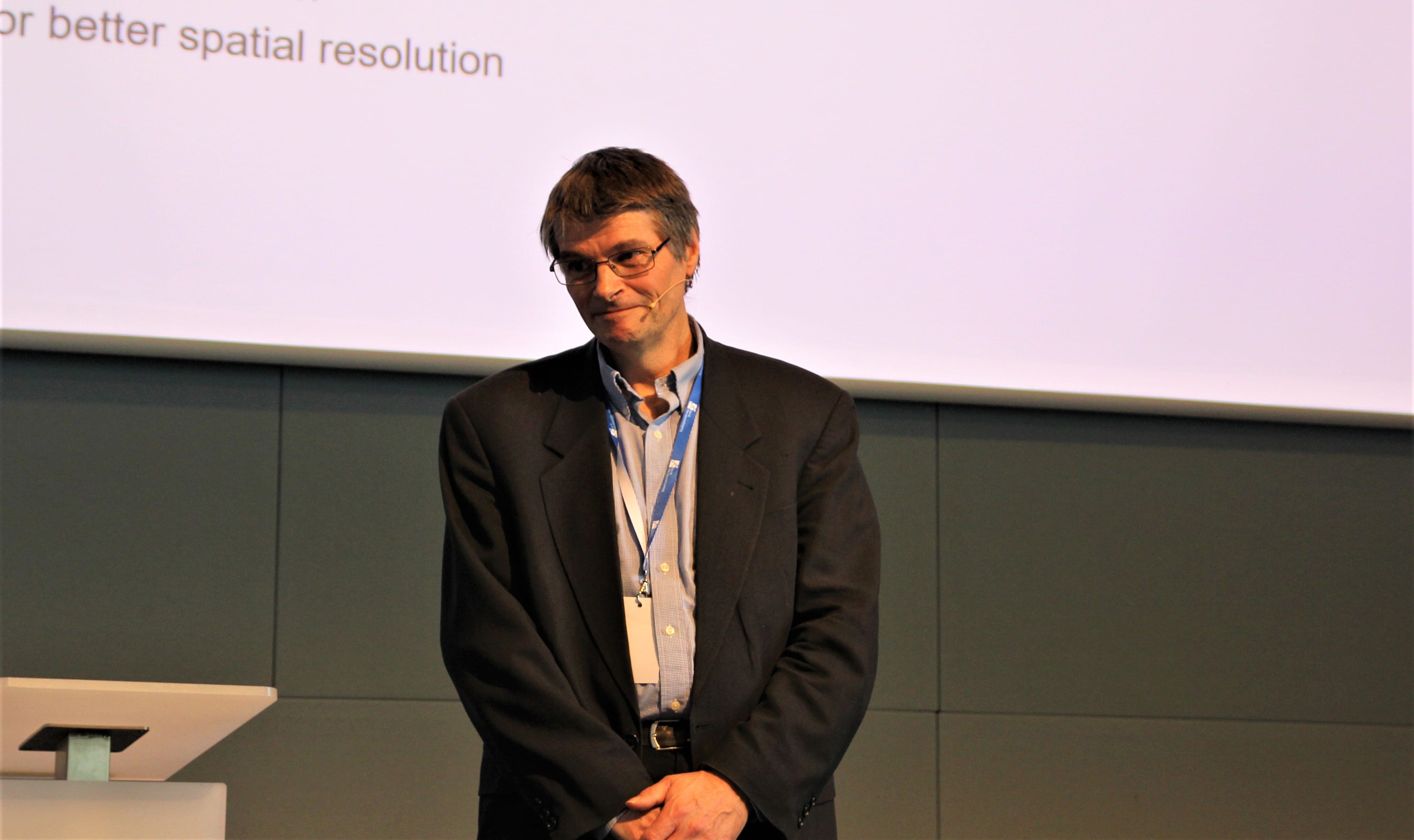“It felt like a brutal theme for a keynote” Egil Tjåland recalls. He received an invitation from the program committee to give a talk related to “What is the future of the geo-community in Norway?”
“Of course we are part of the future, an important and large part!”, Tjåland continues.
Tjåland reflected on the past and future of the geologists and geophysicists in his keynote, concluding the Norwegian Petroleum Society (NPF) Biannual Geophysical Seminar that was held at Fornebu, Oslo, on March 9-11.
“We are seeing a world population increase of 1.1 per cent per year, and the need for energy is also rising. 80 per cent of the energy mix comes from fossil fuels, of which 30 per cent is from oil. Most of the oil comes from old fields discovered 50 – 60 years ago,” Tjåland stated.
“These mature fields are reaching the end of their production and they need to be maintained. There is also a need for the implementation of new technology for Increased and Enhanced Oil Recovery (IOR and EOR), and finally, the fields need to be replaced.”
The geophysical seminar was held at the start of the Corona (COVID-19) outbreak in Norway, just before the country was put in lock-down. During the seminar, the oil price fell more than 50 per cent, down to 2016 levels.
Tjåland has seen such drops in oil-price before, several times: “The ups and downs of the oil price are part of the cyclicity in our business, creating student booms when the oil price is rising, and often when the largest student groups are ready to enter the industry, the price falls.”
“We saw this fall in 1986, through the 90s, in 2008, in 2014, and now. It stresses large and small companies, countries, and of course students all over the world”, Tjåland reflects.

“Around 2012, the petroleum program at NTNU was the most popular technical program in Norway, based on the number of applicants to the available spaces,” says Tjåland. “Now, together with the geology program, they have seen a 90 per cent decline in applicants. This is really serious for the industry,” he continues, “because we need the geo-community.”
“There are marginal oil fields today, that are not marginal anymore when the oil price increase again, and there are still frontier areas to be explored,” Tjåland points out.
“And we need to maintain the ongoing production. Also, Carbon Capture and Storage (CCS) is emerging and is likely to need a lot of our competent students. And, remember, a large proportion of the Equinor staff is approaching retirement age, so they need to be replaced,” is Tjåland’s optimistic message.
“Do not forget:” he continues, “when it comes to Geophysics, Norway has a very strong academic and commercial environment, we are world leaders.”
“I remember from my days as a student, the famous Farouk Al-Kasim, former resource director of the Norwegian Petroleum Directorate, came to see us. He was talking about the future of petroleum engineers in Norway, telling us we needed at least a thousand new engineers for the future. In retrospect, that was an understatement, after all, we had just witnessed the start of the Norwegian petroleum era,” Egil Tjåland concludes.
TERJE SOLBAKK



